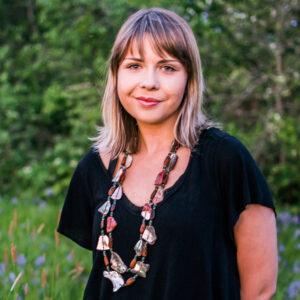
Indigenous Storytelling and Engagement Fellow
Julie Kitka gives a speech virtually at the 2022 Indigenous Leadership Awards. Photo credit: Kari Rowee
Julie Kitka (Chugach Eskimo) is an honored recipient of the 2022 Ecotrust Indigenous Leadership Awards (ILA) for her tireless commitment to ensuring and advancing the rights of Alaska Natives.
As the president of the Alaska Federation of Natives (AFN) since 1990, Julie leads the largest statewide Native organization in Alaska. She is a tenacious defender of Alaska Native interests which include, but are not limited to, child welfare, education, health care, voting rights, hunting and fishing rights, and especially Alaska Native landholdings. Building on more than three decades of work at AFN, Julie’s vision and stability as a leader has led to incredible public-private partnerships which support innovative and transformative change for the benefit of all Alaska Native communities.
She has held numerous positions at AFN, including special assistant for human resources, DC lobbyist, and vice-president before she was elected as president. Julie serves at the pleasure of the 38-member AFN Board of Directors which represents the 13 regional Alaska Native Claims Settlement Act (ANCSA) corporations, the 12 regional non-profit tribal associations, and the nearly 160 village corporations. In total, AFN represents more than 140,000 Alaska Native people – about one out of every five Alaskans.
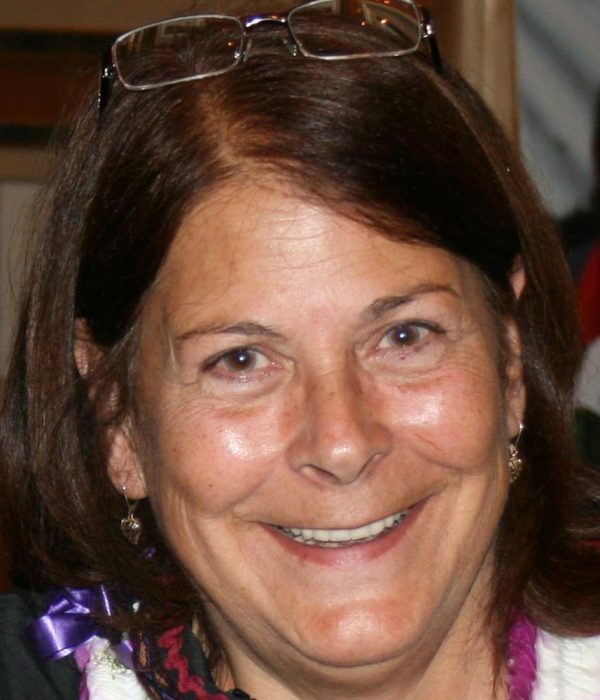
Julie Kitka portrait. Photo credit: Alaska Federation of Natives
“Our organization at its heart, is a unifier,” Julie said. “An organization like ours is intended to bring people together. If you have entities all over the state, and you have cultural differences and language differences, and organizational [differences], the most important thing you can do is pull people together.”
Each year, nearly 5,000 Alaska Natives gather for the AFN annual convention which serves as a forum for the Alaska Native community to discuss and address policy and governmental issues of importance. Until the COVID-19 pandemic, the AFN convention was the largest gathering of Native people on an annual basis in the country.
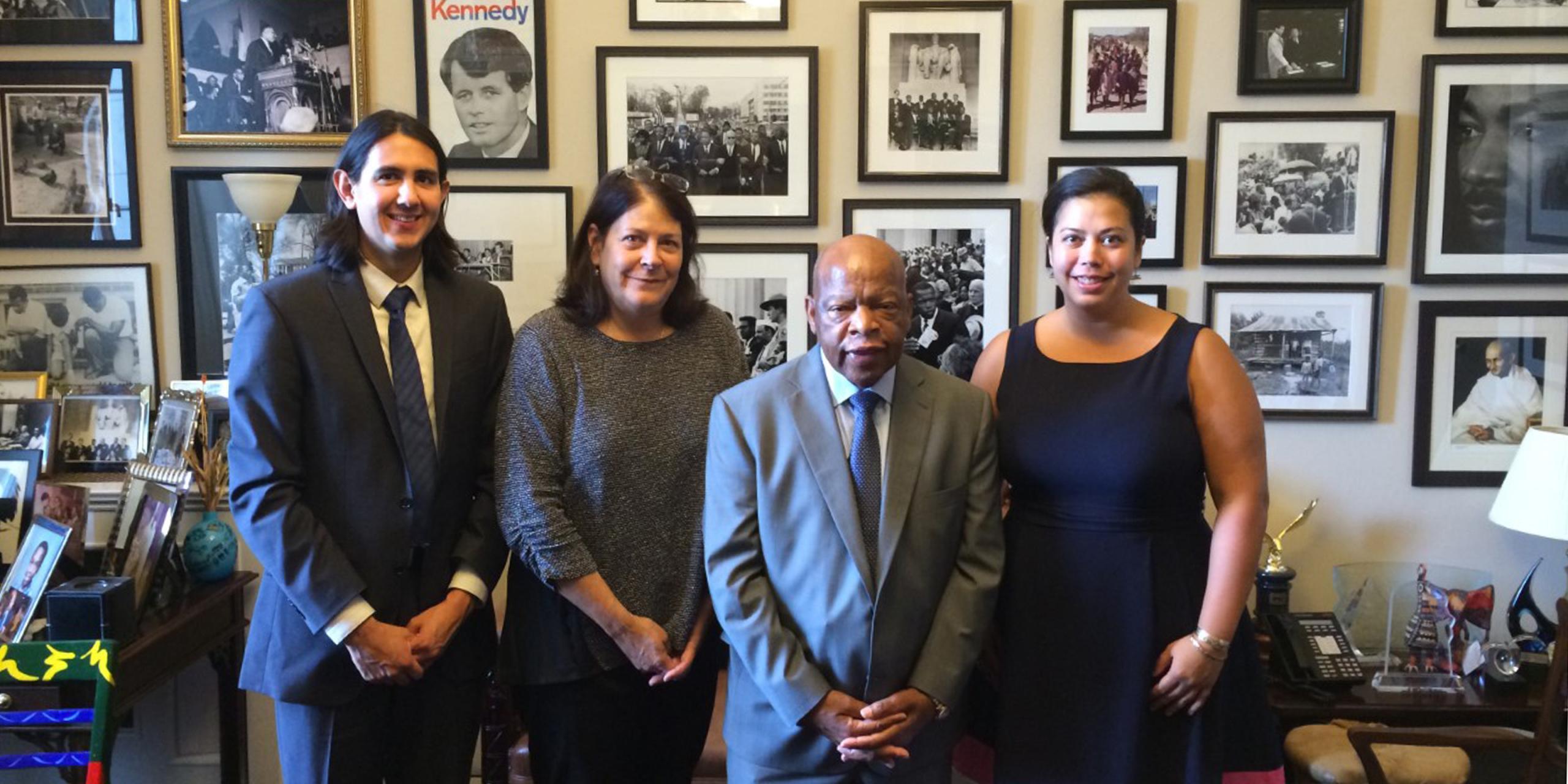
Julie Kitka with the late Congressman and iconic Civil Rights leader, John Lewis. Photo courtesy of Julie Kitka
Formed in 1966 to settle land claims, AFN continues to be the principal agency and voice of Alaska Natives in addressing critical issues of public policy and government. AFN was instrumental in the passage of the Alaska Native Claims Settlement Act (ANCSA) of 1971 and worked to amend and improve it every Congress since passage. ANCSA is a living law and is intended to address the real socio-economic needs of the Native people of Alaska.
A section of ANCSA required further land decisions which eventually became the Alaska National Interest Lands Conservation Act (ANILCA) of 1980. ANILCA protected more than 100 million acres of Alaska’s natural ecosystems and landscapes, while preserving traditional Alaska Natives ways of living on the land.
ANCSA and ANILCA were very large and complex land policy issues which often generated litigation to resolve. Days before Julie became president of AFN, the Alaska Supreme Court issued a ruling on Title VIII of ANILCA. The ruling invalidated the state’s authority to issue a priority for rural subsistence hunting and fishing, which significantly impacted the Alaska Native way of life. The federal government through the Department of Interior and Department of Agriculture were required to step in and provide protection of the subsistence rights.
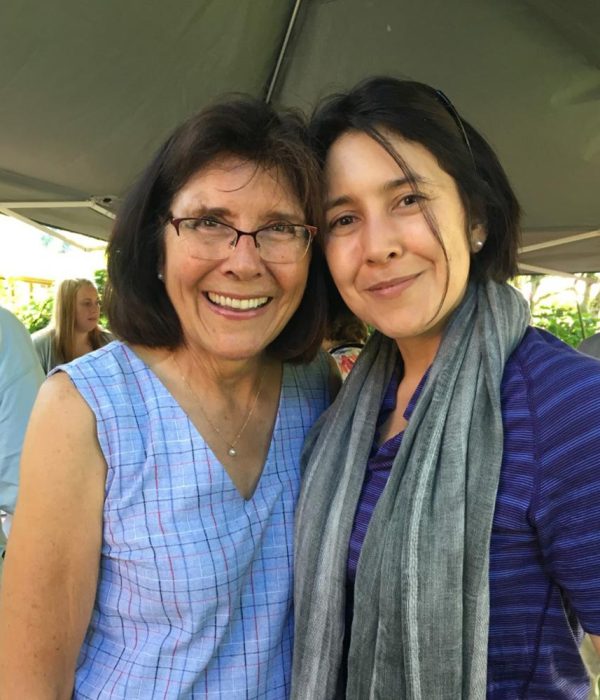
Julie Kitka’s daughter and sister. Photo courtesy of Julie Kitka
For ten years Julie worked as President of AFN to bring the federal and state governments together over subsistence policy. Ultimately the State chose not to give itself the legal authority to have a state law to be in compliance with the federal law ANILCA. “This conflict is about having the ability of our people to continue to live their lives,” Julie said. “It is about freedom. We will do everything we can to keep a legal foundation for our people.”
Another area, Julie worked on was corrections to the original ANCSA and some of the flaws that were identified. There were four primary provisions of ANCSA that AFN successfully amended. These included: One, opening up the corporations to include young Alaska Natives who were born after 1971. Two, obtaining the legal ability to provide or ensure special benefits for elders. Three, obtaining the legal ability to protect land from taxation if it was not developed. Four, removing the 20-year deadline that required corporations to go public. Julie spent many years traveling the villages and regions holding workshops on these issues and building a consensus. She was asked by the AFN Board to travel to DC and be its Chief Lobbyist in moving solutions to these challenges. It was successful in 1987 and passed the Congress.
During Julie’s career, AFN had the opportunity to take over the Alaska Native health system through a statewide compact and paved the way as leaders in the country on compacting. Alaska Native tribes, tribal consortiums and health corporations began running the entire tribal health system. And now, the Alaska Native Tribal Health Consortium is the largest tribal health compact in the nation.
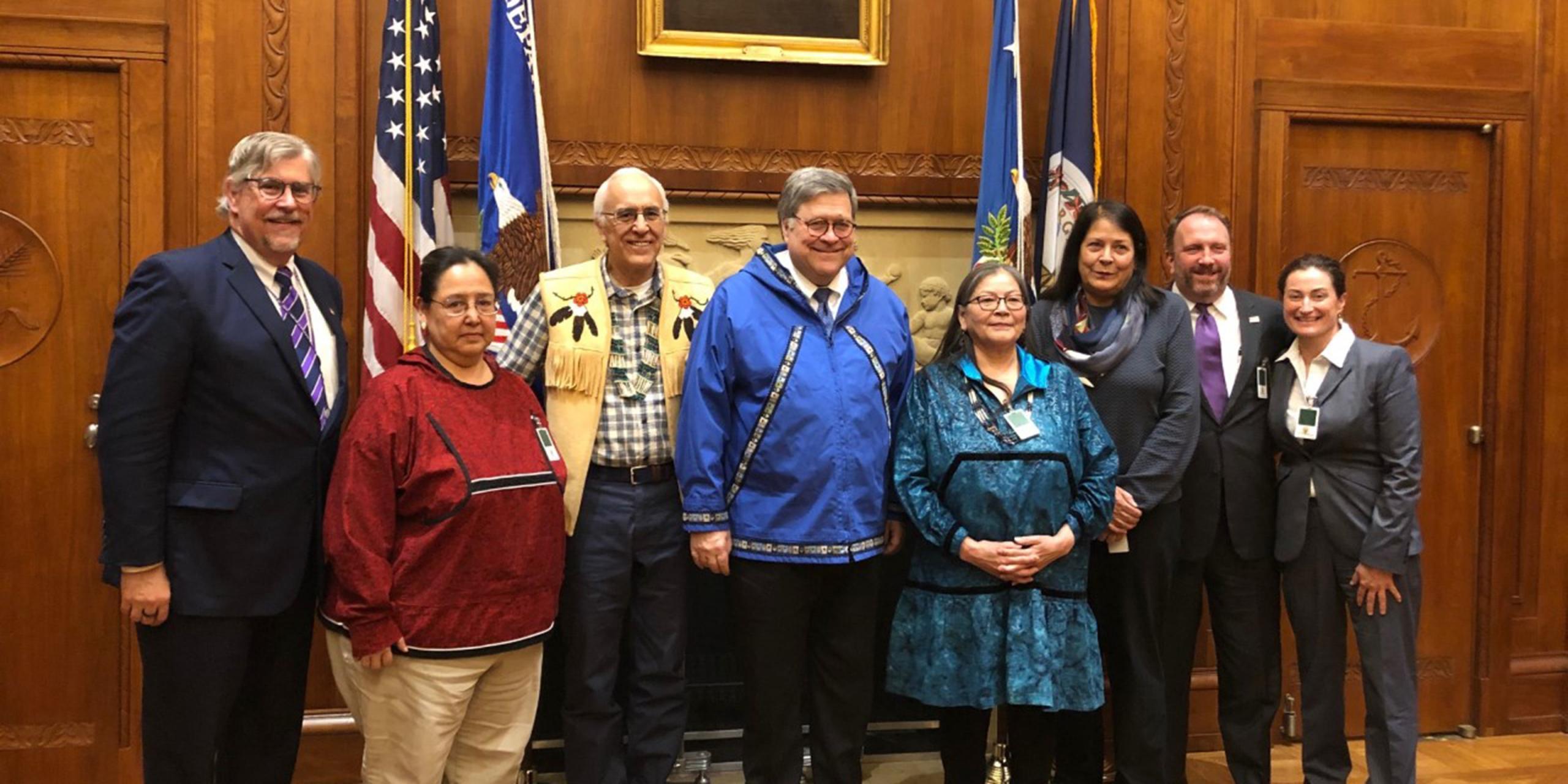
Julie Kitka with former U.S. Attorney General William Barr. Photo courtesy of Julie Kitka
‘We’ve gone all in on compacting,” Julie said. “Because we’ve seen it as a tool where we can exercise greater control over programs intended to help our people.” AFN has continued to lead the way in compacting and established the first ever State-Tribal compact on Child Welfare and recently secured passage of a new state law establishing the first ever State-Tribal demonstration project on compacting in schools. Ms. Kitka is very excited about the transformative change and innovation this will unleash in education.
As an organization that is constantly changing and catering to the needs of the population it serves, Julie said her main purpose as a leader is to “expand our imagination”.
She earned a bachelor’s degree in Business Administration from the Alaska Pacific University in Anchorage and was awarded two honorary doctorates from the University of Alaska, one in Humane Letters and one in Law. In 2020, Julie was awarded the Department of the Air Force Commander’s Public Service Award for her role building an unprecedented partnership with the military in Alaska, including with the North American Aerospace Defense, Northern Command and Alaskan Command; and a Public Service award from the Federal Bureau of Investigation for building partnerships. Recently she received the 2021 Walter J. Hickel Award for Distinguished Public Policy Leadership.
Julie is a shareholder of Chugach Alaska Corporation and serves on the Chugach Board of Directors, from 1982-1988 and then again starting in 2005 to the present. Additionally, she currently serves as one of seven commissioners of the Congressionally formed Denali Commission which oversees federal funding of rural infrastructure. She is also a director for Starlink Initiative Limited, a Division of Space Explorations Technologies Corporation. This Space X division is a limited liability corporation focused on global giving. Julie is one of two outside directors advising on global areas of need.
Julie is the second of five siblings and currently resides in Anchorage with her family.
Ecotrust is proud to recognize Julie Kitka with a 2022 Indigenous Leadership Award for her many achievements.
About the Indigenous Leadership Awards
The Indigenous Leadership Awards is a celebration of the determination, wisdom, and continuum of Indigenous leadership across our region. Since its founding in 2001, 56 exceptional Indigenous leaders have been recognized. These individuals are some of the most distinguished community leaders in the Pacific Northwest, representing a diverse spectrum of Indigenous cultures, languages, communities, and professions. They are negotiators, culture bearers, environmentalists, educators, advocates, scientists, knowledge holders, linguists, artists, resistors, and catalysts for change. All are united in their drive to protect and uplift tribal communities. For more information, visit the Indigenous Leadership Awards webpage.

Project page
A celebration of the determination, wisdom, and continuum of Indigenous leadership across the region